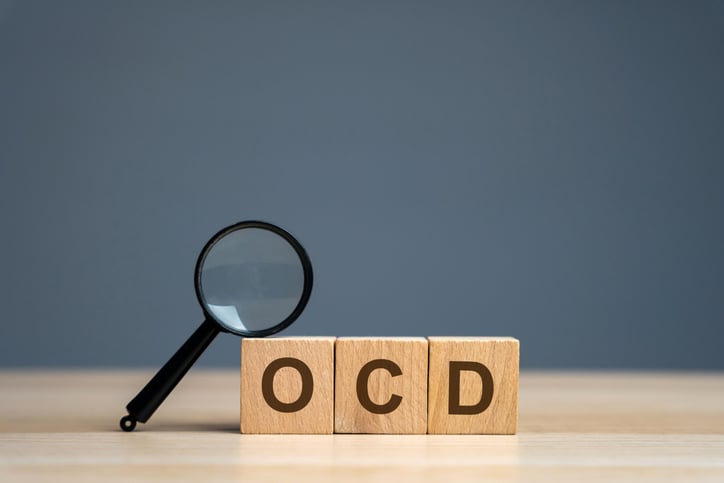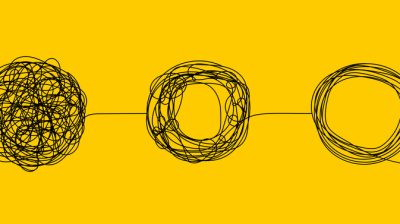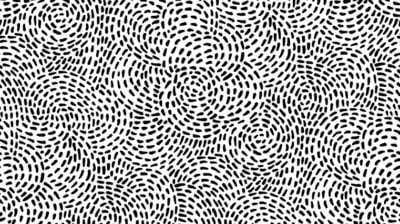How is OCD diagnosed and treated?
Find out more information on the diagnosis and treatment of OCD.

If you suspect that you or a loved one is experiencing obsessive-compulsive symptoms, you might be asking questions like:
How is OCD diagnosed?
What is OCD commonly mistaken for?
Do I have OCD or ADHD?
How is OCD treated?
The following article contains reliable information on how OCD is diagnosed and treated in Ireland.
Can I take an ‘OCD test’?
If you are experiencing obsessive-compulsive symptoms you might look for different types of OCD tests, including online self-tests. However, there is no reliable online self-test that can diagnose OCD. For a professional OCD diagnosis, you will need to visit your GP or a qualified mental health professional, such as a clinical psychologist. Clinical psychologists are trained to assess and treat emotional, psychological and behavioural difficulties.
If you go to see a doctor, psychologist, or psychiatrist for an assessment, they will usually conduct a clinical interview. During this interview, the mental health professional will ask about your mental health background, symptoms, and symptom severity to determine if you meet the “diagnostic criteria” for OCD. Diagnostic criteria are the specific signs and symptoms that doctors use to determine if someone has a particular mental health condition.
How is OCD diagnosed?
To be diagnosed with OCD, a person must regularly experience obsessions, compulsions, or both.
- Obsessions are unwanted or intrusive thoughts, images, or urges
- Compulsions are repetitive behaviours or mental actions (such as counting or praying) performed in response to an obsession
People usually perform these actions to relieve anxiety temporarily or because they believe the actions will prevent something bad from happening, even though they often understand logically that this belief isn’t true.
Not all intrusive thoughts are obsessions, and not all repetitive behaviours are compulsions.
For someone with OCD:
- Obsessions and compulsions typically take up more than an hour each day
- Obsessions cause significant distress, and both obsessions and compulsions can interfere with work, social life, and daily activities
- The symptoms are not caused by another mental health condition or the effects of medication or substances
- Obsessions and compulsions do not feel like a choice and are hard to control, even if the person knows they are inappropriate or excessive
Some mental health professionals use a rating scale to measure how severe a person’s OCD symptoms are. However, professionals do not need to use rating scales in order to make a diagnosis. Clinicians and patients themselves can also use The Yale-Brown Obsessive Compulsive Scale (YBOCS), a common checklist and severity scale. The YBOCS doesn’t replace a professional assessment and/or diagnosis, but can help track changes in symptom severity over time.
If you think you might have OCD, the first and best step is to talk to your GP. They can refer you to a psychologist or psychiatrist for further evaluation and treatment.
What is OCD commonly mistaken for?
It can sometimes be difficult to tell the difference between OCD and other types of mental health difficulties, including OCD-related disorders. This is especially true if you are experiencing OCD along with other mental health conditions.
Some conditions often confused with OCD include:
- Anxiety disorders, such as generalised anxiety disorder
- Major depressive disorder
- Other obsessive-compulsive and related disorders, such as body dysmorphic disorder, hoarding disorder, trichotillomania (hair-pulling disorder), excoriation (skin-picking disorder)
- Eating disorders
- Tic disorders
- Psychotic disorders (e.g., schizophrenia, schizoaffective disorder)
- Obsessive-compulsive personality disorder (Unlike OCD, obsessive-compulsive personality disorder involves a persistent pattern of perfectionism and rigid control, without the presence of obsessions or compulsions)
According to the DSM-V, a manual used by mental health professionals around the world to diagnose mental health conditions, many adults with OCD also have another mental health condition at the same time, such as:
- An anxiety disorder (76 per cent)
- A depressive or bipolar disorder (63 per cent)
- Obsessive-compulsive personality disorder (ranging from 23 to 32 per cent)
- A tic disorder (up to 30 per cent, more common in males)
- Schizophrenia or schizoaffective disorder (approximately 12 per cent)
The prevalence of OCD is also higher among individuals with eating disorders (approximately 8-12 per cent) and Autistic people compared to those without these conditions.
Do I have OCD or ADHD?
People with OCD and ADHD can struggle with tasks that require strong “executive functioning.” Executive functioning is the ability to remember information, making decisions, and shift attention between different activities. These similarities can sometimes lead to misdiagnosis, where a professional might mistakenly diagnose someone with OCD as having ADHD, and vice versa.
Research shows that it can be difficult to tell OCD and ADHD apart because both conditions involve unusual activity in the frontostriatal system. The frontostriatal system is a part of the brain that controls movement, thinking, and behaviour, amongst other things. In people with OCD, this system is overly active, while in people with ADHD, it is less active.
Generally, people with ADHD are more impulsive and take more risks, while those with OCD usually act the opposite way. People with OCD tend to be good at doing precise, repetitive tasks that follow strict rules, whereas people with ADHD might find these tasks more difficult.
How is OCD treated after being diagnosed?
Effective treatments for OCD include:
- Exposure and response prevention cognitive-behavioural therapy (ERP-CBT)
- Selective serotonin reuptake inhibitor medications (SSRIs)
SSIs are a type of antidepressant. Since SSRIs tend not to provide enough relief from OCD symptoms on their own, many experts recommend trying a combination of therapy and medication.
Other types of counselling and psychotherapy are often less effective than ERP-CBT for treating OCD symptoms. In ERP-CBT, you gradually face triggers that bring about your obsessions. After encountering these triggers, you practise resisting the urge to act on your compulsions.
How do I know which therapy is right for me?
If you wish to explore therapy options, ask your GP for a referral to your local Adult Mental Health Service (AMHS). In many areas, clinical nurse specialists trained to deliver CBT are available.
Or, if you are choosing private treatment, you can find approved cognitive-behavioural therapists on the websites of the Irish Association for Behavioural and Cognitive Psychotherapies (IABCP) and Cognitive Behavioural Therapy Ireland (CBTI). Look in the ‘Find a Therapist’ section. Some counselling psychologists and clinical psychologists also have training in ERP-CBT. If you would like help finding a qualified psychologist with experience in ERP-CBT, you can contact the Psychological Society of Ireland.
Many people with OCD find self-help and support groups beneficial. Visit the OCD Ireland website to access additional resources.
To find out more about OCD, take a look at our factsheets on OCD symptoms, including intrusive thoughts, and how to manage these symptoms.
Feeling overwhelmed and want to talk to someone?
- Get anonymous support 24/7 with our text message support service
- Connect with a trained volunteer who will listen to you, and help you to move forward feeling better
- Whatsapp us now or free-text SPUNOUT to 50808 to begin.
- Find out more about our text message support service
If you are a customer of the 48 or An Post network or cannot get through using the ‘50808’ short code please text HELLO to 086 1800 280 (standard message rates may apply). Some smaller networks do not support short codes like ‘50808’.






